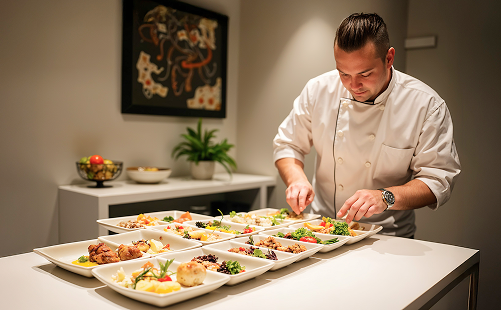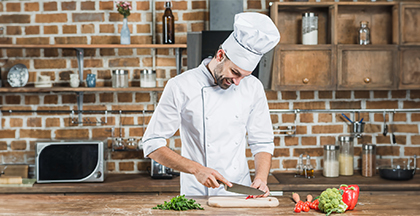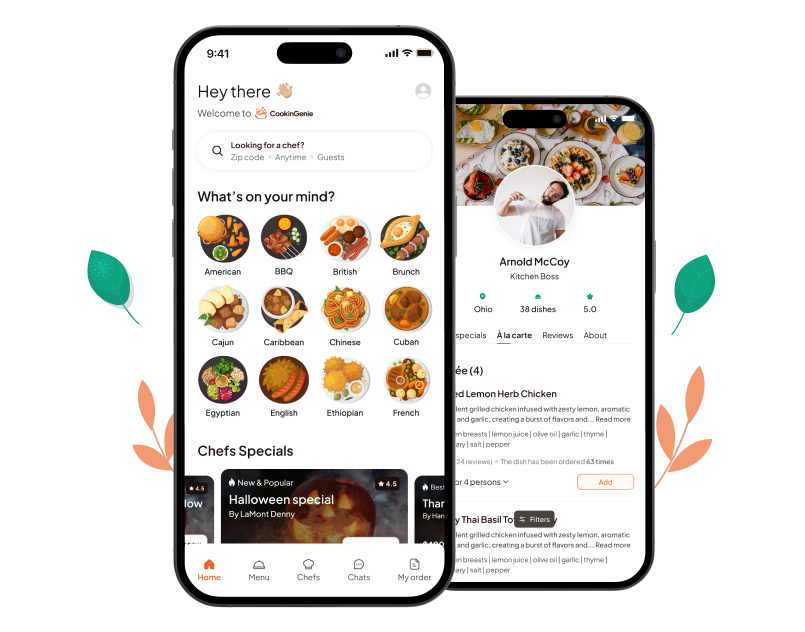How to Reduce the Burn of Spiciness
You know that moment when food tastes incredible for exactly half a second… and then your mouth feels like it signed up for a dare it cannot finish?
Spicy food has a way of doing that. One confident bite turns into watery eyes, tingling lips, and an urgent search for anything that might make the heat stop.
The good news is that there are proven ways to reduce the burn of spiciness. Better news: you do not have to suffer through it or drown your mouth in water and regret.
This guide breaks down why spicy food burns, how to reduce spiciness in food, what actually works in the moment, and how to enjoy heat without punishment next time.
Why Spicy Food Burns in the First Place
The reason spicy food is considered burning hot and is, in fact, burning hot is because of a chemical compound called capsaicin, and it is in chili peppers.
Capsaicin attaches itself to the pain receptors in the brain that otherwise detect temperature. Your brain recognizes an emergency because of the danger, and it reacts with, among other things, profusive sweating and the immediacy of the body going into some sort of a cumulative panic.
Capsaicin is not soluble in water, which is why drinking it does not help and often makes the problem worse.
To effectively reduce the feeling of spiciness, you need to eat foods that bind, absorb, or dilute the capsaicin.
How to Get Rid of Spice in Your Mouth Fast
If your mouth is already on fire, speed matters.
The fastest relief comes from fat and protein, not liquid volume.
Milk, yogurt, and ice cream work because they contain casein, which attaches to capsaicin and removes it from your tongue. Cold temperature also helps calm the nerve response.
If dairy is not an option, starchy or fatty foods can still help absorb the spice and stop it from spreading.
What Actually Helps with Spicy Food (And What Doesn’t)
- Milk, Yogurt, and Ice Cream
These are the most reliable solutions. They break down capsaicin instead of spreading it around. Whole milk works best, but yogurt and ice cream are equally effective.
- Bread and Rice
Bread helps with spicy food because it absorbs capsaicin oil and limits how much stays in contact with your mouth. Rice, naan, and crackers do the same job quietly and efficiently.
- Peanut Butter and Honey
Peanut butter helps with spicy food due to its fat content, while honey helps by coating your mouth and reducing irritation. Both are surprisingly effective in small amounts.
- Ice and Water (Umm… Maybe Not)
Ice may feel soothing, but it only offers temporary relief. Water does not help at all and often intensifies the burn.
How to Reduce the Spice in Food Before Eating
Sometimes the dish itself needs fixing.
To reduce spice in food:
- Add yogurt, cream, or coconut milk
- Increase portion size with rice, pasta, or potatoes
- Balance heat with acid like lemon juice
- Add mild sweetness to soften sharp spice
Dilution is the most reliable way to reduce spice level in food without destroying flavor.
How to Eat Spicy Food Without Burning Your Mouth
If you enjoy heat but not suffering, strategy matters.
Eat spicy food slowly. Pair it with cooling sides. Alternate bites with dairy or starch. Avoid alcohol and carbonated drinks during the meal, as they spread capsaicin.
Spice should enhance flavor, not overpower it.
When Spice Is Not the Vibe
Everyone has a different tolerance. There is no prize for pushing through discomfort.
If you prefer bold flavors without the burn, meals cooked to your preference make all the difference. Custom spice levels remove the gamble entirely and let you enjoy food instead of recovering from it.
Feeling Spicy? Know More!
Anything creamy, fatty, starchy, or sweet helps with spicy food. Think milk, yogurt, ice cream, rice, bread, or fruit juice. These all-tame Capsaicin and bring the burn down to tolerable levels.
To reduce spiciness in food, add dairy like yogurt, cream, or coconut milk. You can also dilute the dish with rice, potatoes, or broth to lower heat intensity.
Eat starchy or fatty foods alongside the dish, such as bread, rice, yogurt, or peanut butter. These absorb capsaicin and prevent the burn from spreading.
Milk, yogurt, or ice cream work fastest because they contain casein, which breaks down capsaicin and removes it from your mouth.
Eat slowly, take smaller bites, pair spicy food with cooling sides, and drink milk instead of water.
Wipe lips clean and apply a neutral fat like yogurt, milk cream, or coconut oil. Avoid licking your lips, as it spreads capsaicin.
Add dairy, starch, or liquid to dilute the dish. Yogurt, cream, rice, or potatoes work well to reduce heat.
After spicy food, eat yogurt, milk, ice cream, rice, or bread to calm your mouth and stomach.
Yogurt, ice cream, peanut butter, bread, rice, honey, and sugary drinks all help reduce spice without milk.
Yes, honey helps with spicy food by coating the mouth and soothing irritated nerve endings.
Yogurt is one of the best remedies because it contains casein and provides cooling relief.
Ice offers temporary cooling but does not remove capsaicin. It works best when combined with dairy.
Use fewer chilies, remove seeds, balance heat with fat and starch, and adjust spice gradually while cooking.
If your meal is blowing your taste buds to pieces, here’s how to neutralize spicy food: go for dairy or fat, throw in something sweet or acidic, and don’t be afraid to remix the dish entirely.
Final tip: How do you cool down spicy food? Serve it with yogurt, rice, or cold sides. Or, just let someone else cook next time and have them keep it chill from the start.



 Settings
Settings
 Gift Card
Gift Card Blog
Blog Locate Us
Locate Us











 Home
Home
 Chefs
Chefs
 Chats
Chats
 My Order
My Order



